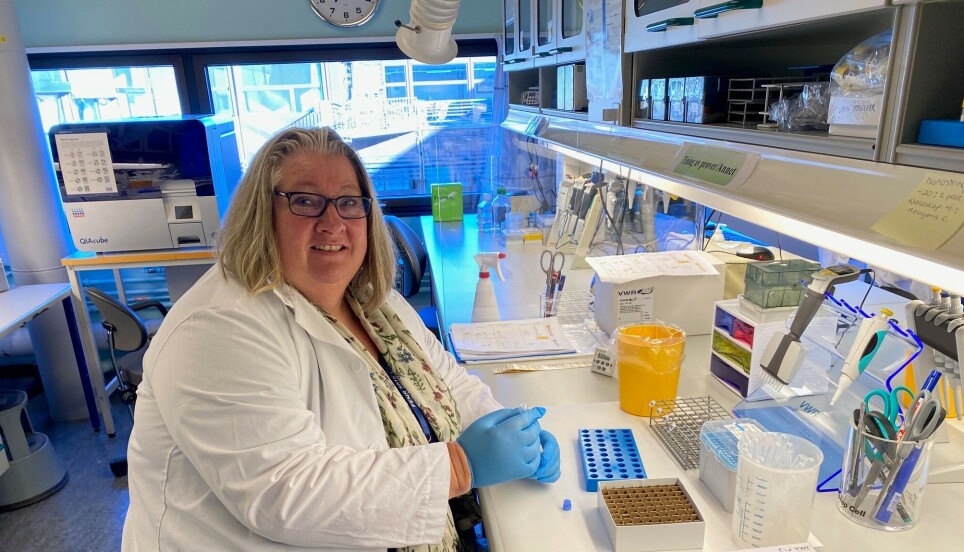THIS ARTICLE/PRESS RELEASE IS PAID FOR AND PRESENTED BY University of Oslo - read more

We need to focus on cholesterol levels even in childhood
Today, the main focus is on lowering high cholesterol levels in adults in order to prevent atherosclerosis. But then it is already too late - we should start focusing on lowering cholesterol in childhood, suggests professor Kirsten Holven.
Kirsten Holven, professor at the Department of Nutrition, has received funding in the order of several million kroners from the Throne Holst Foundation. She is to carry out research on how cholesterol-lowering and diet affects the interaction between cholesterol and inflammation and how the body then “remembers” this through life.
She will study the effect of these mechanisms on the development of atherosclerosis, i.e. the narrowing of the blood vessels due to the build up of plaque inside them.
And Holven’s issues a clear warning: we start the process of prevention too late, when the narrowing of arteries is already too far advanced.
"If we turn our attention to this problem when people are young, we would be able to slow down atherosclerosis significantly and achieve greater positive effects. In recent years, more and more research has shown that it is the life-long burden of cholesterol that affects the development of atherosclerosis. In other words, a large amount of this cholesterol builds up during childhood and adolescence. Cholesterol levels are currently only monitored from adulthood, perhaps first in your forties. By this time, atherosclerosis is already advanced and it is difficult to reverse it completely," explains the professor.
Parents can make healthier food choices
What you eat as a child can therefore have a large effect on whether you will need to take medication in your fifties in order to combat high cholesterol.
"Parents can make healthier choices when it comes to the diet they give to their children while growing up. Only relatively small changes in the level of cholesterol are needed if started early," says Holven, who advocates that parents should know the level of their children’s cholesterol.
Children with more signs of atherosclerosis
The development of atherosclerosis is driven by the interaction between cholesterol and inflammatory substances. If the level of cholesterol in your blood is too high, this is usually the result of your lifestyle. However, some people may have hereditary high cholesterol, called hypercholesterolemia.
Atherosclerosis starts during the childhood years and continues throughout life. Studies have shown that mothers with high levels of cholesterol during pregnancy have children who show more signs of atherosclerosis than children born of mothers with a normal level of cholesterol.
"Even in infancy, there are large differences in levels of cholesterol. A Finnish study demonstrated that the cholesterol level you have at the age of 3 years is closely related to the cholesterol level you will have as an adult. This means that if you had elevated cholesterol in your blood as a child, you are more likely to have elevated cholesterol as an adult," says the professor.
Urges parents to feed their children in line with national dietary guidelines
Holven points out that we now have good, well-documented, national dietary recommendations on how to eat in order to prevent disease.
"If you follow these guidelines, it will put your cholesterol on the right track. You can easily improve your level of cholesterol by changing your diet. For example, you can reduce the amount of saturated fat in your food and replace it with unsaturated fat.."
Large repercussions for the economy
Holven emphasises that cardiovascular disease caused by atherosclerosis is the leading cause of death in both women and men in Norway and Europe. Cardiovascular disease also puts a major financial burden on healthcare budgets worldwide.
"Preventive measures that can reduce these costs will therefore bring major benefits to national economies," she says.
Professor Holven’s research project is entitled 'Dietary prevention of cholesterol induced trained immunity in early atherosclerosis', and consists of five sub-projects. One of these involves studies of children, adolescents and adults and is led by professor Kristen Holven. In addition, there are studies of animals and cells, where key researchers are professor Bente Halvorsen, professor Jason Matthews and associate professor Knut Tomas Dalen and professor Stine Ulven.
FACTS
Cholesterol
Cholesterol is one of the body’s fats (lipids). Most cholesterol is produced by the body itself. But the kind of fat you eat affects the level of cholesterol in your blood.
The main function of cholesterol is to transport fat from the blood and into cells where it is used as a source of energy.
There are two kinds of cholesterol: LDL and HDL. LDL is often called “bad cholesterol” and a high level of LDL is harmful to your health because it leads to a build up of plaques on the inner lining of blood vessels. If your blood vessels narrow due to this plaque, you will develop what is called atherosclerosis or hardening of the arteries. This in turn results in a higher risk of suffering a heart attack or stroke.
Find out more on the project’s website
Dietary prevention of cholesterol induced trained immunity in early atherosclerosis
See more content from the University of Oslo:
No content
































